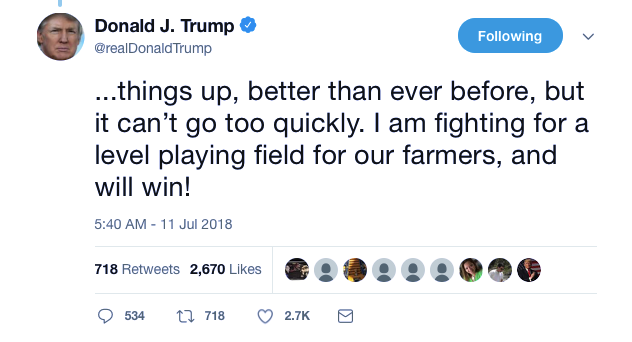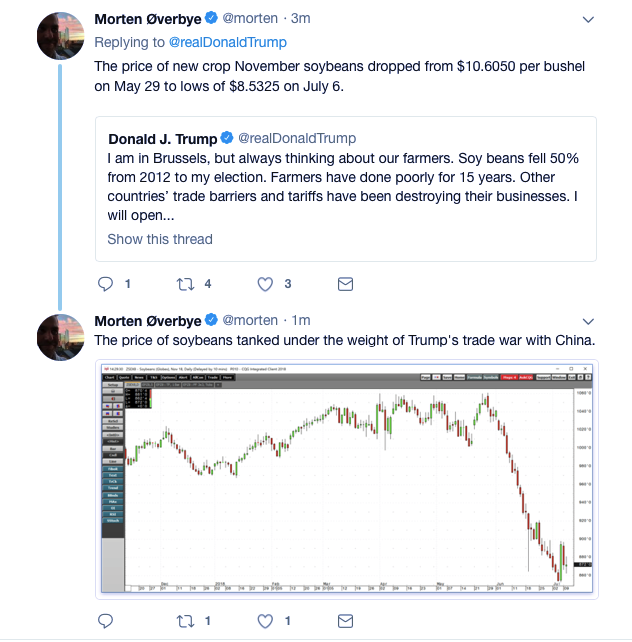Farmers across the U.S. overwhelmingly voted for Donald Trump during the 2016 election, and now they’re suffering for that choice. Although, to hear Trump tell it, he’s helping farmers “bigly,” his trade wars are hurting U.S. companies and, more than anyone, U.S. farmers.
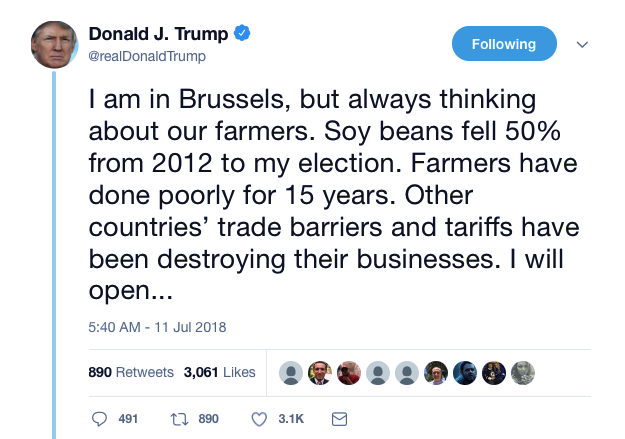
While it is true that soybean prices have fallen significantly since 2012, that has nothing to do with U.S. policies or administrations before Trump. The 2012 rise in prices was an anomaly because of the lack of rain, and the basic laws of supply and demand explain the drop in prices.
USA Today explains:
‘The value of field crops fell to $166.95 billion in 2013, down from $185.12 billion in 2012, the USDA said in a recent report. The value is determined by multiplying the average price for a crop from Sept. 1 to Aug. 31 by the total production.
‘Corn and soybean harvests declined during the drought of 2012, driving prices to record highs and increasing the value of field crops. But in 2013, an abundance of grain — owing to the record 13.9 billion bushels of corn and third-largest soybean crop — sent prices downward.’
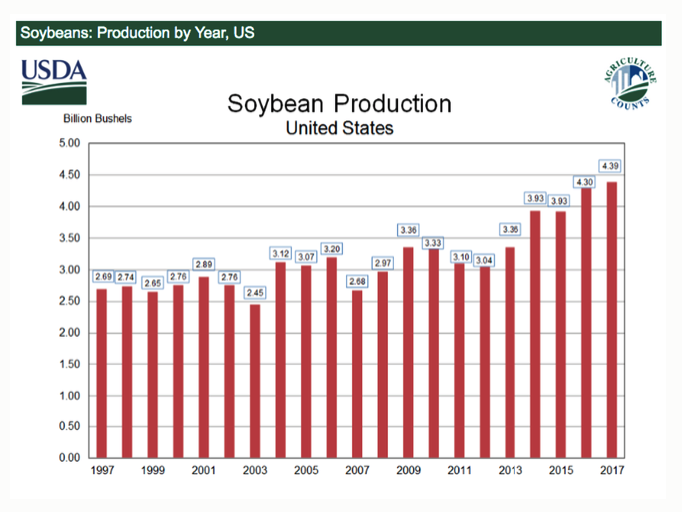
As production increases, the cost to farmers increase as well since they must work harder to make the same revenue as before. Despite Trump’s insistence that his policies will help farmers, those who actually do the farming say that his trade policies are hitting them the hardest.
The effects of Trump’s tariffs are projected to hit farmers even harder over time, according to economists quoted by The Washington Times.
‘Long term, the prospects are even worse. Although soybean prices rallied Thursday morning, they were still down more than 20 cents. And even if prices stabilize, tariffs will erode farmers’ Chinese market share, said Wallace Tyner, a Purdue University economist who has modeled the likely effect of the tariffs. Within three to five years, Tyner’s model shows, Brazil and Argentina would replace the United States as China’s main source of soybeans. That could force U.S. farmers to switch to less lucrative crops, such as corn or wheat.’
Twitter was not swayed by Trump’s lies. See some of their comments below:


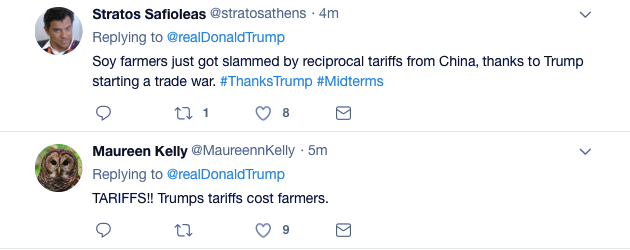
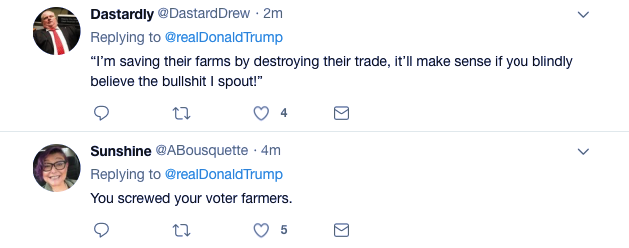
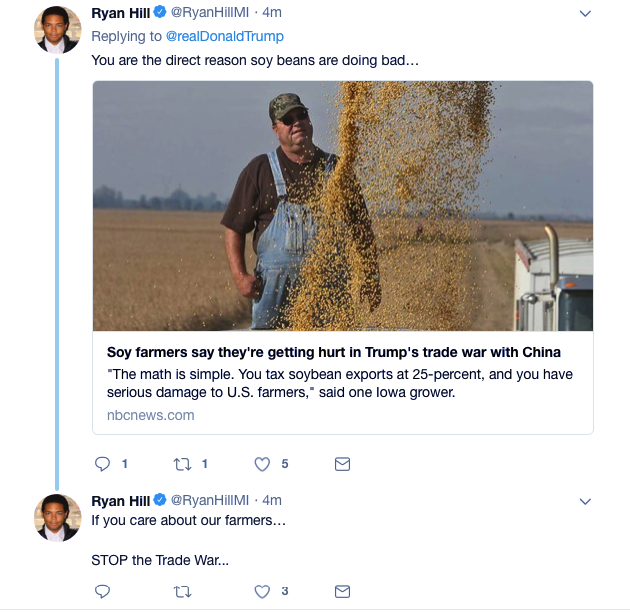

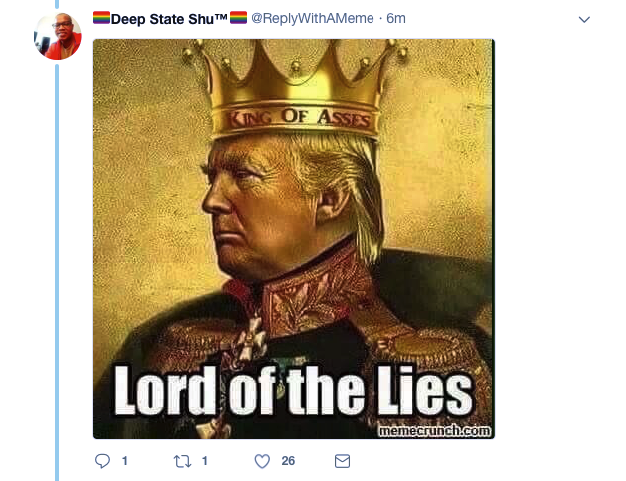

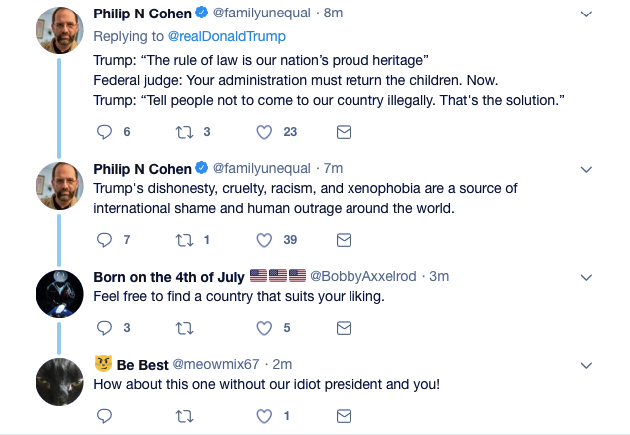
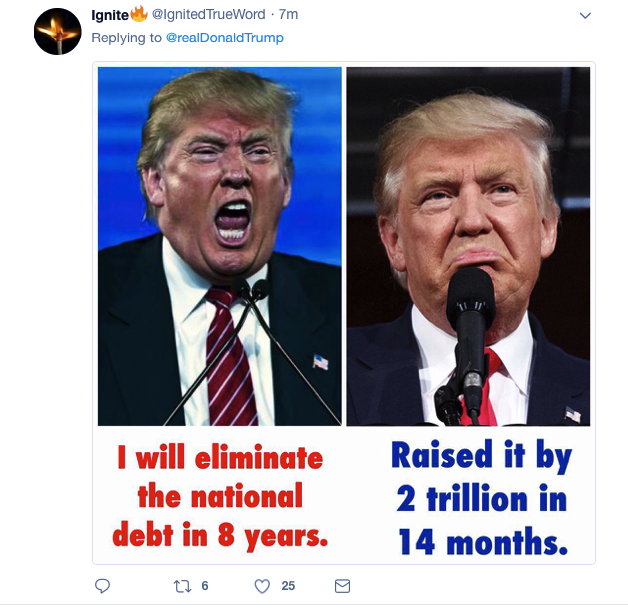
Featured image via Getty/Al Drago



